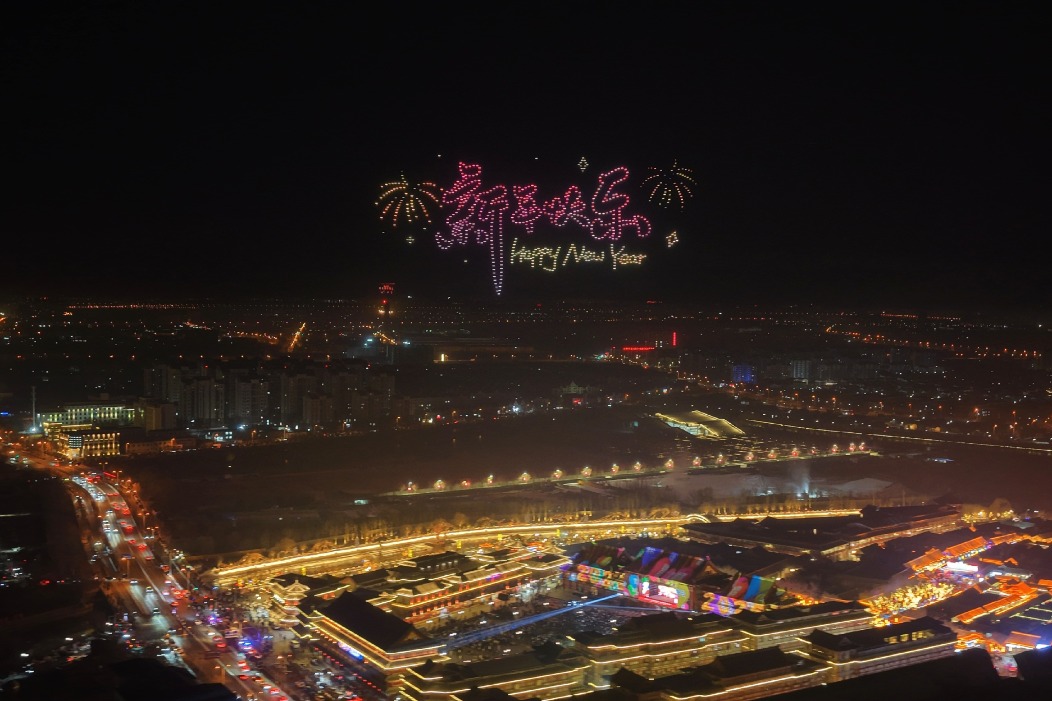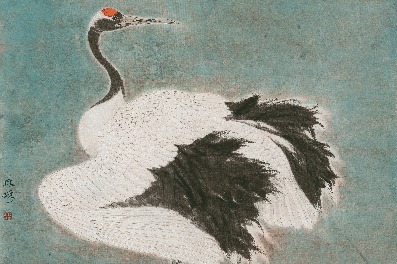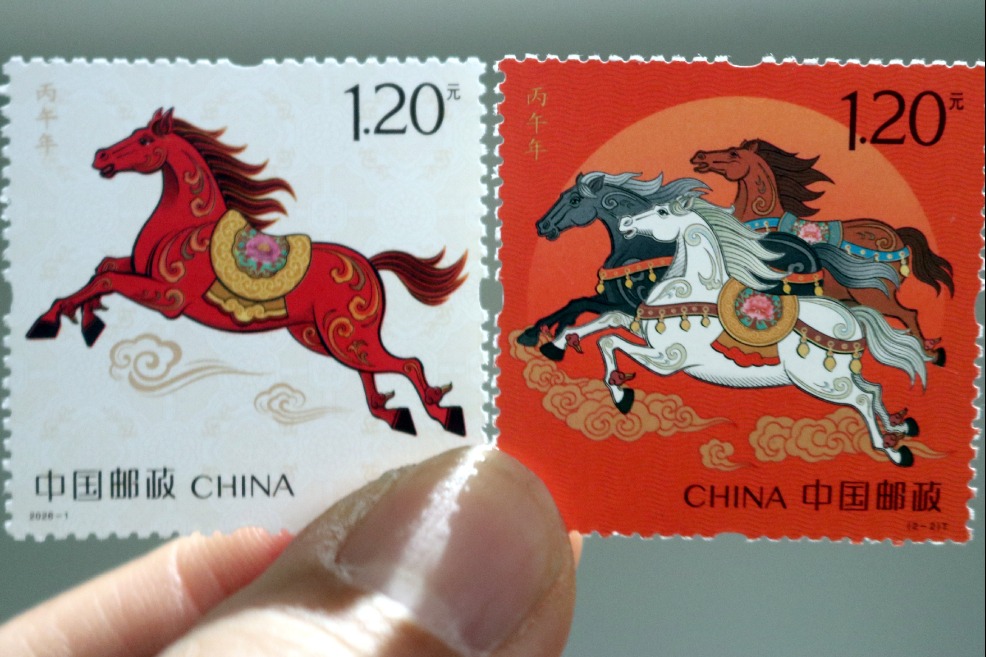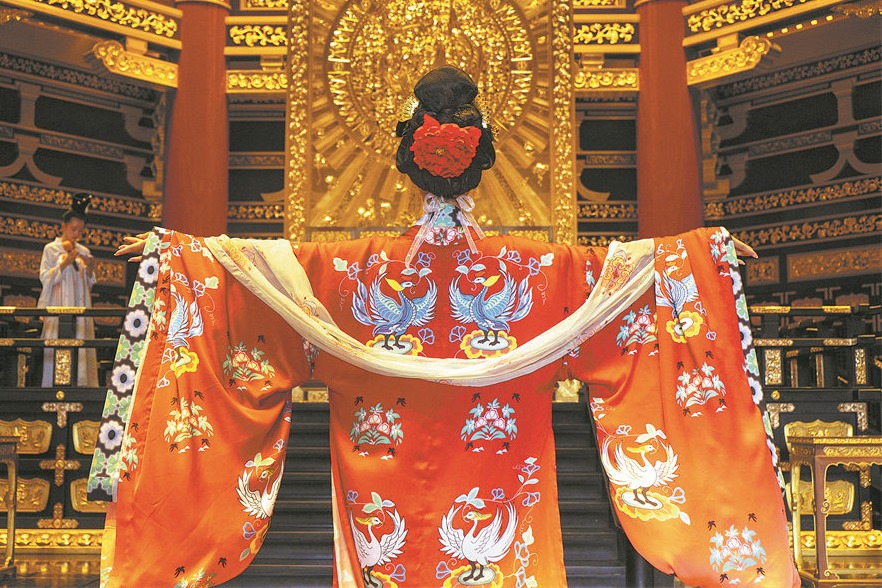Culture sector takes hit but remains resilient

A recent research study, published on Guangming Daily's website, estimates that the direct loss to the cultural industry during the novel coronavirus epidemic before June could reach more than 1,259 billion yuan ($180 billion).
"The cultural industry, especially the programs involving gatherings and people-to-people exchanges, are facing a great impact and challenges over the novel coronavirus epidemic," according to the report of a research led by Xiang Yong, deputy director of the Institute for Cultural Industries at Peking University.
Due to health concerns over the epidemic, a growing number of trade fairs, conferences and cultural events have been canceled or postponed across the country since Jan 30, when the World Health Organization declared a public health emergency of international concern as the virus spreads.
On Feb 7, the organizers of the Art Basel Hong Kong 2020 decided to cancel the show, which drew about 88,000 people last year. Originally scheduled to be held at the Hong Kong Convention and Exhibition Center next month, the exhibition features premier galleries from Asia and beyond.
The Taipei Game Show was also postponed. It was originally scheduled to be held during Feb 6-9. It will be held in June, according to its organizers.
Design Shanghai, a major show for the design market, has been rescheduled to take place in May. Its organizers say the decision is based on "advice and information from government and local authorities in China and consultation with our partners, venue and local team".
Following government suggestions to avoid congregating in crowded places, most events due to be held before April have been canceled or postponed across the country, amid rising concerns over the epidemic which claimed more than 2,700 lives and infected over 78,000 people nationwide as of Thursday. Not only domestic events are affected, the public health crisis also cast a shadow over exhibitions and conferences abroad.
Outside China, the new coronavirus has infected 2,918 people in 37 countries as of Tuesday, with 43 deaths reported, according to the World Health Organization.
CP+ 2020, a major photography trade show in Japan, has been canceled as well.
According to a CGTN report, each March, Christie's and Sotheby's hold special auctions during Asian Art Week in New York. But this year, the auction houses will be quiet in March. The two major auction houses announced the postponement of a special auction during New York's Asian Art Week because of immigration restrictions and concerns about the health of staff and attendees.
With shows, fairs and conferences at home and abroad being postponed or canceled due to the outbreak, the Ministry of Commerce on Feb 17 released a public information service platform for cultural trade-http://culture.tradeinservices.mofcom.gov.cn.
It aims to guide and help the country's cultural exporters to tap the global market amid the epidemic.
The platform has 10 columns, including policies and regulations, country guides, data bank, and cultural trade exhibitions at home and abroad.
The platform showed no cultural trade events will be held in China this month and next, and four cultural events-the Beijing International Film Festival, the China International Cartoon and Animation Festival in Beijing, the Animation and Comic Joy Festival in Guangzhou and Travel Suzhou in Jiangsu province-will be held in late April.
According to the Ministry of Commerce, the preparations for the 127th China Import and Export Fair, also known as the Canton Fair, are proceeding as planned. The fair is scheduled to start on April 15 in Guangzhou, Guangdong province, according to the event's official website.
Xiang says in his research that the influence on the cultural sector is temporary and it should provide new solutions for transitional development.
He suggests authorities pay more attention to the training of professionals and focus on innovation in the form of cultural goods and services to reduce dependence on the manufacturing sector.
The government should continue to support the development of the digital cultural sector to build influential companies on the global stage, he adds.
Although the coronavirus outbreak has shut tourist sites and closed cultural events, both within China and beyond, digital tourism, online cinemas, virtual museums and livestreaming concerts and performances are welcomed by residents quarantined at home across the country.
"While creating new models in the cultural sector, emerging technologies have no doubt influenced traditional business patterns, which will promote more diversified operations," Xiang says.
Thanks to digital technologies and favorable policies, the cultural industry has become a major engine for the country's economic growth.
The latest statistics of the National Bureau of Statistics shows the cultural industry generated more than 8.66 trillion yuan last year, up 7 percent year-on-year. It took about 9 percent of the country's GDP.





































